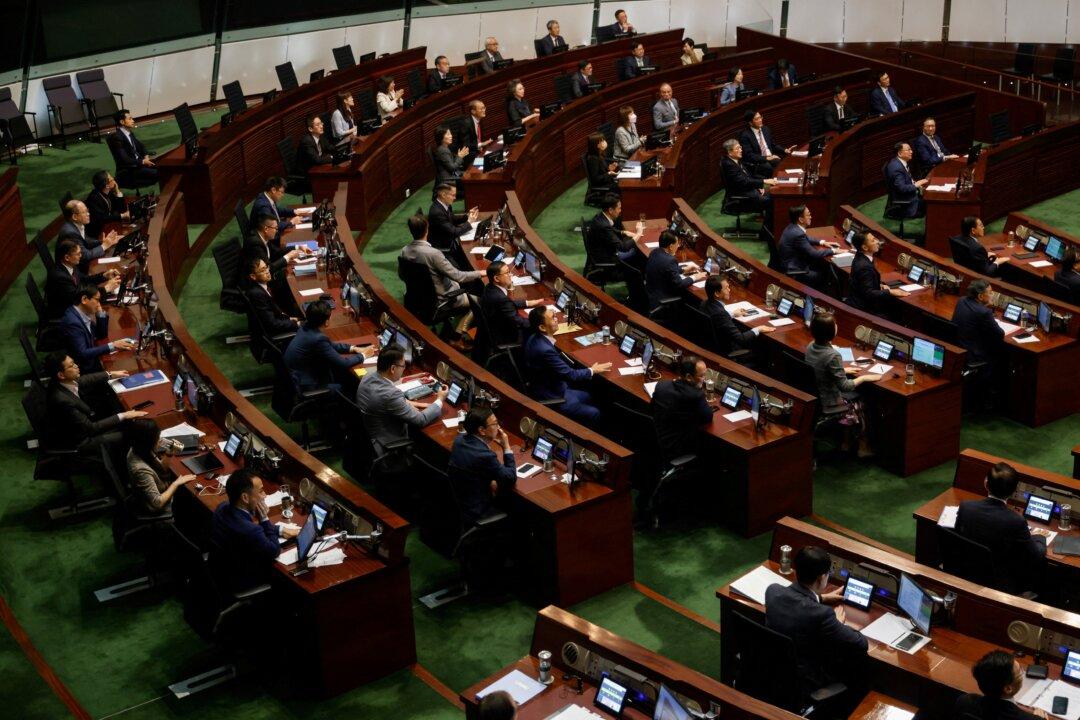HONG KONG—Hong Kong’s legislature unanimously voted on Thursday to overhaul district level elections by drastically reducing directly elected seats, a move critics said removed some of the last vestiges of democratic freedoms in the China-ruled city.
Under the amendment bill, only 88 seats would be directly elected by the public, down from 452 seats in an election that saw a landslide victory by the democracy camp in 2019. The number of overall seats would also be reduced from 479–470.





